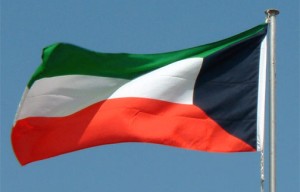 Kuwait's minority Shia MPs have lost more than half of their seats in the second parliamentary election in less than a year, official results show.
Kuwait's minority Shia MPs have lost more than half of their seats in the second parliamentary election in less than a year, official results show.Shia candidates won eight seats in the 50-member parliament, compared with a record 17 in the ballot in December.
Liberal and tribal groups have emerged the main winners. Voter turnout was an estimated 52.5%, which was higher than expected despite an opposition boycott.
The previous parliament was dissolved in December over a procedural flaw.
Kuwait has one of the most empowered parliaments in the Gulf region, but constant political tension has crippled its work.
New rules
Observers say the election represents a blow to Shia MPs, who in December won their biggest tally to date. Shia form 30% of the country's 1.2 million population.
Liberal MPs, who were not represented in the previous parliament, have gained three seats, while tribal groups maintained their 24 seats, local media report.
Sunni Muslims increased their presence from five to seven seats.
Meanwhile, opposition groups ranging from liberals to Islamists and tribal leaders boycotted both this and the December election in protest at an electoral law decreed by Kuwait's emir last October.
The law, which sparked mass protests, allows each voter to choose just one candidate at the ballot box, down from four previously.
Opponents said the new rules were designed to allow the ruling al-Sabah family to manipulate the election outcome, and that changes to the voting system should be agreed by parliament.
However, some opposition candidates participated in Saturday's vote.
Despite scorching temperatures, Saturday's turnout beat the record low 40% in December. Average turnout in Kuwaiti polls is reported to be around 65%.
Political parties are banned in Kuwait. Instead the tribal, religious and sectarian loyalties define the work of the parliament, which has lawmaking powers and can hold government ministers to account.
However, the emir has the final say in matters of state. He also chooses the prime minister, who in turn picks a cabinet, with members of the the al-Sabah family occupying the top posts.
By BBC
The Iran Project is not responsible for the content of quoted articles.










